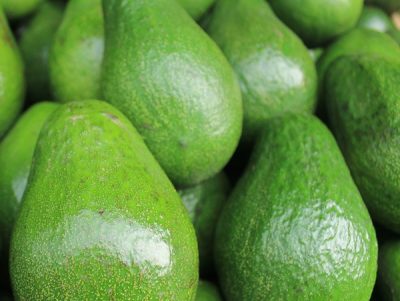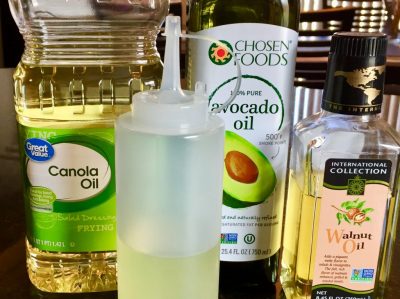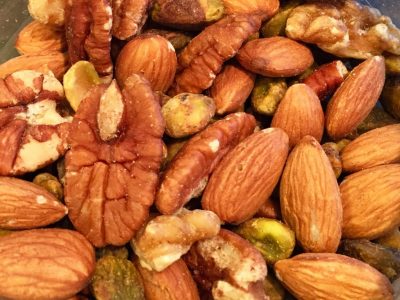


Vitamin E
Tocopherol
Surprisingly, the importance of vitamin E wasn’t noted until 1922. Researchers discovered that rats needed this substance to have normal reproduction. Researchers later named it tocopherol, from the Greek words meaning childbirth and to bear.
It is important to note that food and supplement labels show the type of vitamin E by “d” or “dl”. If it shows “d” that means 100% of the vitamin E will be active in the body. If you see “dl” it means that only about half of the vitamin E will be active in the body. Really good info to know if you need to boost your vitamin E intake.
The best food sources containing vitamin E are plant oils (cottonseed, canola, safflower and sunflower oils), avocado, almonds, peanuts, sunflower seeds and wheatgerm. Products made from plant oils (margarine, & salad dressings) are also good sources. The content of vitamin E greatly depends on how the food is processed. It is easily destroyed by light, heat, metals and oxygen. A good rule of thumb is to try and eat foods that are the least processed.
Adults need 15mg/day of alpha-tocopherol, and sadly the average American gets only two-thirds of the recommended amount. Vitamin E is a fat-soluble vitamin, which means you need fat in your diet to be able to absorb it.
Vitamin E is an important antioxidant that helps maintain cell membranes. It helps stop damaging reactions caused by free radicals (unstable compounds). I like to think of them as little warriors that go out and help protect the cells in our bodies. Vitamin E also helps our bodies absorb vitamin A.
Deficiency is found mostly in individuals who have problems absorbing fat, such as cystic fibrosis, Crohn’s disease, smokers and preterm babies. Preterm babies are born with limited stores of vitamin E and often aren’t able to absorb enough. Deficiency causes the premature breakdown of red blood cells and the development of hemolytic anemia. It can also impair immune function.
If a person gets too much vitamin E, it can interfere with vitamin K’s role in blood clotting. This can cause insufficient clotting and increase risk of bleeding. This is a definite concern in those individuals taking blood thinning medications (aspirin, warfarin). The upper limit for adults is set at 1000mg/day.